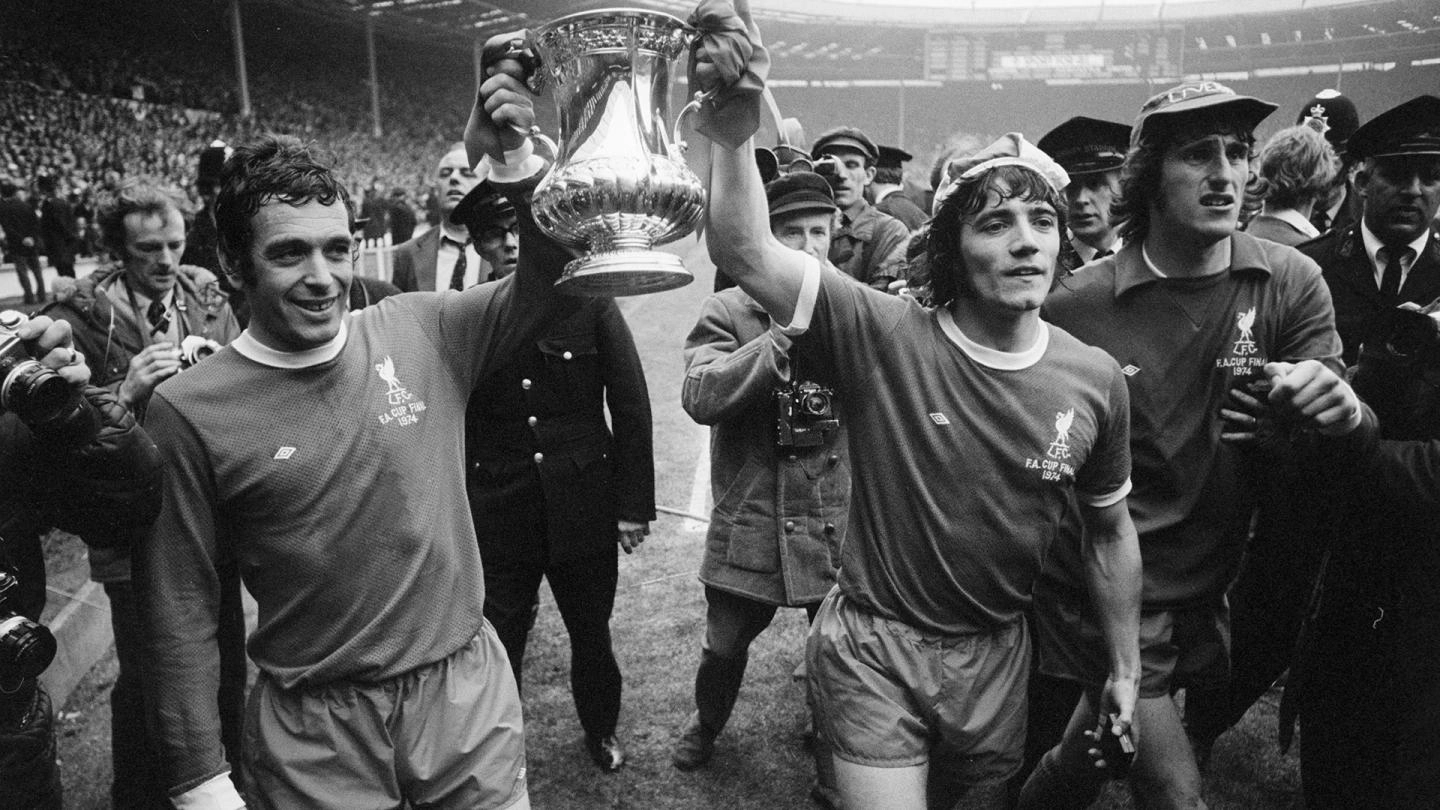HonoursFA Cup
1965, 1974, 1986, 1989, 1992, 2001, 2006, 2022
Liverpool have lifted the FA Cup on eight occasions, with their most recent success coming under Jürgen Klopp at Wembley in 2022.
The Reds endured something of a torturous relationship with the competition for much of their early history, losing in the final against Burnley in 1914 and then against Arsenal in 1950.
By the time Bill Shankly took over as manager heading into the 1960s, the club had been crowned league champions five times but had still yet to lay their hands on the nation's oldest trophy. There was even talk of a curse.
But the wait was ended on May 1, 1965 in front of 100,000 at Wembley.
A tense affair with Leeds United was goalless after 90 minutes, before Roger Hunt and Billy Bremner struck for either side during the opening half of extra-time.
Ian St John converted Ian Callaghan's cross in the 111th minute, though, and with a 2-1 victory Liverpool had finally righted a wrong in their history books.
There was another defeat in the showpiece in 1971 – with the Gunners again the Reds' nemesis – though Shankly's glorious Anfield reign would end with more FA Cup joy.
On the afternoon of May 4, 1974, Liverpool produced what was widely considered one of their finest performances of the era.
They dismantled Newcastle United in a 3-0 win, with all the goals coming in the second half – Kevin Keegan's brace was netted either side of a Steve Heighway finish.
There was a defeat by Manchester United in the 1977 final, but a pair of FA Cup triumphs followed in the second half of the 1980s, with neighbours Everton the opponents on both occasions for Kenny Dalglish's men.
Ian Rush was the chief architect of the victories over the Blues, scoring twice on May 10, 1986 – alongside a Craig Johnston effort – as the Reds recovered from a first-half deficit to win 3-1.
The club's all-time top scorer was at it again in the final on May 20, 1989. After John Aldridge's early goal had been equalised by Stuart McCall's late one, substitute Rush netted twice during extra-time to help secure a 3-2 success.
Those results sandwiched a shock loss to Wimbledon in the 1988 decider, but Liverpool were back at Wembley for a third FA Cup success in seven seasons on May 9, 1992.
Michael Thomas and Rush, yet again, were on the scoresheet for Graeme Souness' team in a 2-0 victory over Sunderland.
After a defeat by Manchester United in the 1996 final, the Reds' next two wins in the competition were completed at Cardiff's Millennium Stadium – and both in hugely dramatic circumstances.
On a sun-drenched May 12, 2001, Gerard Houllier's men delivered the second leg of a memorable cup treble that season in astounding fashion.
Trailing 1-0 to a dominant Arsenal with fewer than 10 minutes remaining, Michael Owen hit a clinical, quickfire double to snatch the silverware for his side.
On May 13, 2006 – with Rafael Benitez now at the helm – Liverpool trailed 2-0 and 3-2 versus West Ham United and needed a long-range Steven Gerrard thunderbolt to level the score in the last minute.
Benitez's charges clinched the penalty shootout 3-1, with their captain so influential that he has earned the rare distinction of the match being known as The Gerrard Final.
The Reds were edged out by Chelsea in the decider of 2012 but when the clubs clashed in it again a decade later, it was Klopp's team celebrating.
A compelling and closely fought contest on May 14, 2022 somehow remained goalless after 120 minutes of play, meaning the cup's destination was again settled from 12 yards.
And Liverpool it was who prevailed 6-5, with Kostas Tsimikas coolly converting the winning penalty in sudden death.
